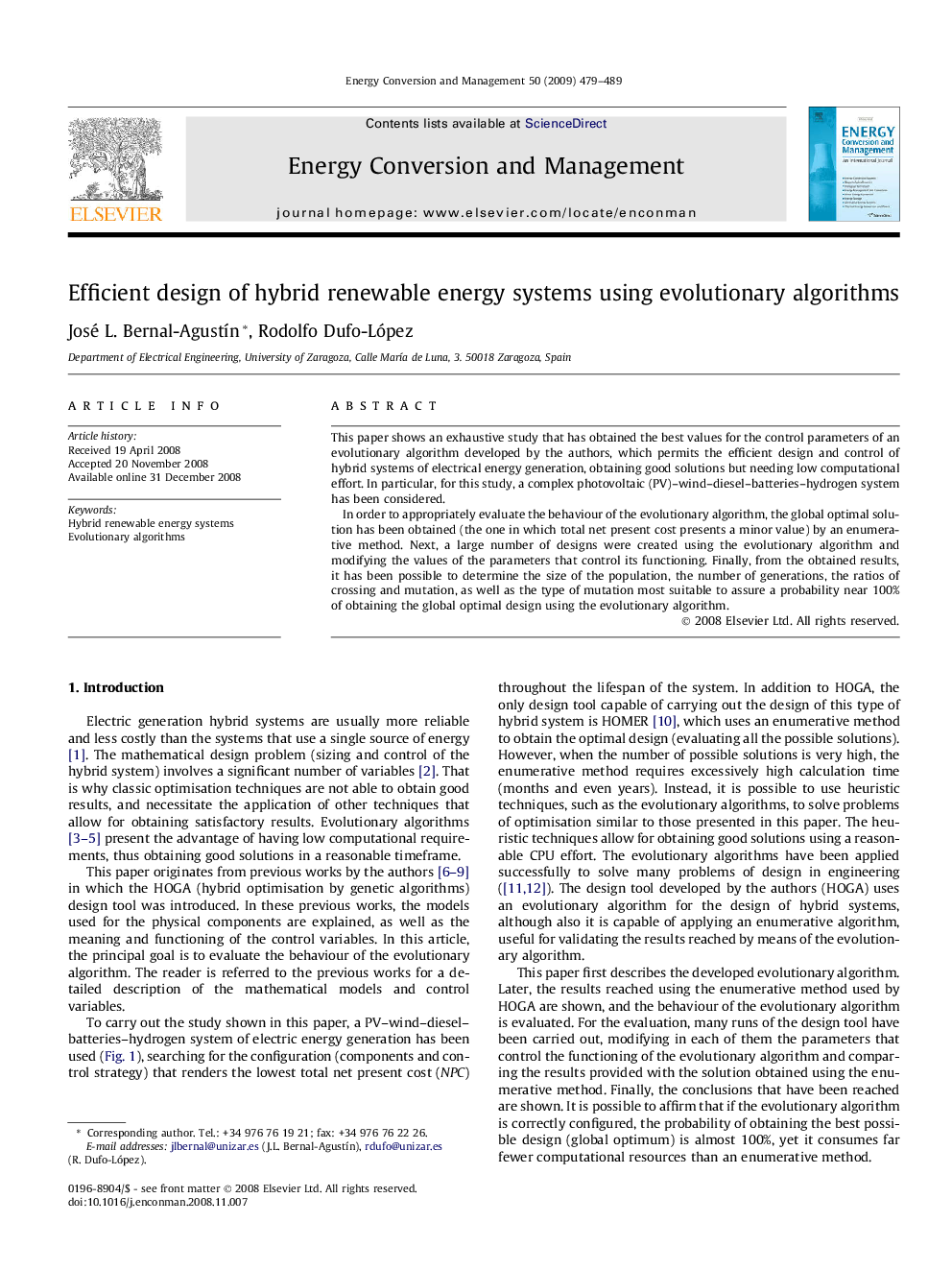| Article ID | Journal | Published Year | Pages | File Type |
|---|---|---|---|---|
| 766356 | Energy Conversion and Management | 2009 | 11 Pages |
This paper shows an exhaustive study that has obtained the best values for the control parameters of an evolutionary algorithm developed by the authors, which permits the efficient design and control of hybrid systems of electrical energy generation, obtaining good solutions but needing low computational effort. In particular, for this study, a complex photovoltaic (PV)–wind–diesel–batteries–hydrogen system has been considered.In order to appropriately evaluate the behaviour of the evolutionary algorithm, the global optimal solution has been obtained (the one in which total net present cost presents a minor value) by an enumerative method. Next, a large number of designs were created using the evolutionary algorithm and modifying the values of the parameters that control its functioning. Finally, from the obtained results, it has been possible to determine the size of the population, the number of generations, the ratios of crossing and mutation, as well as the type of mutation most suitable to assure a probability near 100% of obtaining the global optimal design using the evolutionary algorithm.
